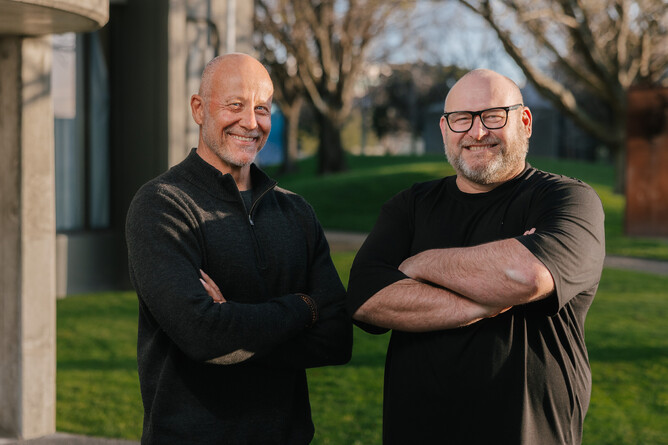Kiwifruit is a cornerstone of New Zealand's horticulture industry, but it faces a growing challenge: maximising post-harvest fruit quality while maintaining a skilled workforce. With the industry expected to significantly increase its production by 2030, a new approach to harvesting is needed. Meet the founders of Picka, one of the ventures participating in the Sprout Accelerator Spring25 Cohort, who are tackling this problem head-on with an autonomous, robotic picking assistant.
The three founders are a formidable team, described as total legends. Mike Williams, the industrial design lead, has 25 years in Agritech, design, and manufacturing. Darren Harpur is a business leader known for driving innovation and collaboration, particularly through his work developing technology-focused business ecosystems that connect people, sustainability, and industry. Chris Hill has a background in product development and entrepreneurship. No strangers to the Sprout Accelerator, seasoned entrepreneurs Mike and Chris have now both participated multiple times with different ventures, highlighting the value they find in the programme.
The idea for Picka emerged from a collaboration between Waikato University and Zespri to initially address the post-COVID labour shortage in kiwifruit picking. The team were aiming to focus on expanding the demographic of pickers to include groups such as netball teams or older people. As labour availability improved, the focus shifted to optimising picking speed and maintaining fruit quality. Their "eureka" moment was a different approach to the traditional, one-armed picking robots, instead of bringing the robot to the fruit, they would bring the fruit to the robot.
Their solution, the eBin, is a cobot that carries the fruit bin and features a picking deck, allowing pickers to simply place fruit on it, which then automatically fills the bin. The most significant pain point Picka is addressing is not just the labour but the issue of fruit damage and quality, which can lead to spoilage and waste. Their design also improves efficiency, quality, and health and safety, as it removes manual carrying and reduces the need for other machinery in the orchard. There has also been promising feedback from picking gangs during initial field trials, which is encouraging for the team.
The next immediate milestone for Picka is to define its core business model and strategy, and secure funding to launch a field trial. Mike and the team hope to leverage their time within the Sprout Accelerator to gain focus and guidance. For them, success is defined by making a clear "go" or "no-go" decision on the project's viability. They believe that regardless of the outcome, they'll have valuable learnings and an established "A team" ready for the next adventure. Which hopefully entails seeing their machines in operation across New Zealand and beyond.

